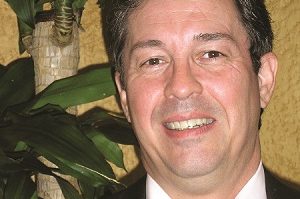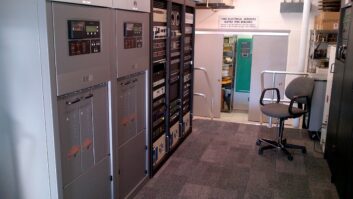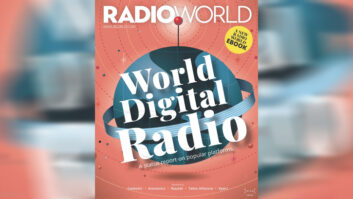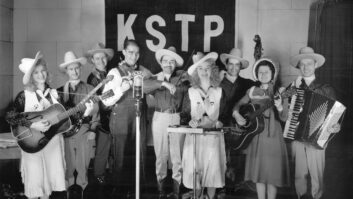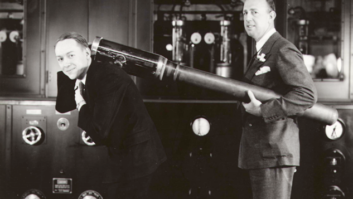The author is the executive director of Radio VOP in Zimbabwe and a fellow at the Center Media Data and Society at Central European University in Budapest, Hungary.
HARARE, Zimbabwe — Ensuring diversity in radio broadcasting is crucial for democracy in Africa, as radio remains one of the most popular forms of media. The picture is still patchy. Many African countries have improved significantly. But there are still nations where promoters of radio diversity face an uphill battle.
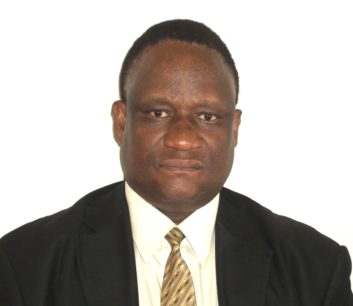
Marked on the day of 13 February following UNESCO’s designation nine years ago, World Radio Day is “a celebration of the first electronic medium that has, over the decades, remained a powerful medium for connecting people and possessing the potential to reinforce critical governance concerns such as access to information, media diversity and pluralism,” Mirta Lourenço, chief of UNESCO’s Media Development and Society, Communication and Information section said in an interview with Radio World International.
That is especially true in Africa where radio has remained the most popular mass-medium thanks to its adaptability to rapidly changing living conditions on the continent, Zimbabwean academic Winston Mano wrote in a book published in 2011. He attributes radio’s growth to its simplicity, flexibility and easy access.
The sector has been thriving in Africa in recent years, significantly diversifying in terms of ownership, content and access platforms.
DEEPENING DEMOCRACY
Having a diverse radio framework helps deepen democracy, said Lumko Mtimde, former head of the Media Diversity and Development Agency (MDDA) in South Africa.
“The policy, legislative and regulatory framework in South Africa provides a diverse radio industry with three tiers, namely public, private commercial and community radio. This framework defines ownership and control, governance and licensing,” said Mtimde, who also worked for the media regulator in South Africa as well as various community radio associations both national and international including the Canada-headquartered World Association of Community Radio Stations (AMARC). The diversity in the industry also facilitates a more diverse programming structure, he said.
The situation is similar in some other countries, for example Kenya where the market has more than 100 radio stations. Media freedom and civil society activist Grace Githaiga says that “most of them play music, but they have freedom to broadcast any content so long as it does not offend the senses. Some do go overboard especially with content that may be of sexual nature but the regulator has now come up with a code of conduct that outlines the watershed period. Otherwise, stations continue to be licensed without any hindrance.”
“In Africa radio has remained the most popular mass-medium thanks to its adaptability to rapidly changing living conditions on the continent.”
Radio in Ghana is also diverse in terms of output, ownership and even language, according to Atiewin Mbillah-Lawson, a senior broadcast journalist with the privately owned Starr FM. “While some stations aim at attracting youths with good music, witty banter and interviews with trendy celebrities, others focus on news and current affairs programs aimed at promoting good governance, democracy and accountability.”
These radio stations broadcast in English, but also in many local languages like Twi, Ga and Kusaal. Broadcasting in different languages helps include minorities in radio programs, which is a very important aspect of diversity. In South Africa, the public broadcaster SABC broadcasts in 11 languages, says Shepi Mati, journalism lecturer at Rhodes University.
CHALLENGES AHEAD
Wits Radio Academy and community media trainer Jacob Ntshangase says that community radio in particular helped boost the diversity of sector. “People in remote rural communities are now able to listen to news and content that is about them. Radio space is open for anyone to venture into commercial entities at regional level,” he says.
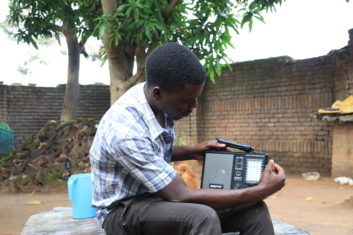
Nevertheless, community radio stations face several challenges. They “sometimes seem to struggle to maintain the initial language conditions of their license due to social mobility and migration,” Mati says. Furthermore, Ntshangase says, some of the founders of various community radio stations “want to turn them into private properties,” which is the perfect diversity-killer recipe.
Dangers remain in other African nations, too. Sam Phiri, a former journalist and media studies lecturer at the University of Zambia, said that in Zambia broadcast diversity “is constrained by its self-proclaimed status of being a Christian nation. For years Muslims have applied for radio broadcast licenses but have never been allowed to broadcast even on the state-owned Zambia National Broadcasting Corporation (ZNBC).” At the same time, Christian stations, run by both the Catholic and Pentecostal churches, strengthened their control over an increasing share of the nation’s airwaves, Phiri added.
LONG WAY TO GO
Still, in some African countries community radio stations are the only media that can offer diverse programming. In eSwatini, formerly Swaziland, Radio Lubombo, the first community radio station in the country, has spent 19 years lobbying heavily to be allowed to register; and still has to apply for a broadcast license to be able to launch broadcasting. Nearly all broadcast media in eSwatini are state-controlled propaganda arms in the service of the King Mswati III, sub-Saharan Africa’s last absolute monarch.
The Media Institute of Southern Africa (MISA), an NGO in Zimbabwe, for many years has expressed concerns about the state ownership in most of the country’s radio stations. Zimpapers, a pro-government newspaper company also offers radio and television services. But that is hardly an example of media diversity. The Broadcasting Authority of Zimbabwe (BAZ), the country’s media regulator, has not licensed any community radio station to date.
Mano says: “We have a monolithic radio space which is pro-ruling party. Minorities of languages and other interests are still poorly served. Rural audiences have poor signal and new players are crowded in urban centers.”
The need for diversity in the media is not a new concept in Africa. Media Monitoring South Africa’s Radio News Diversity Project highlighted the importance of media diversity already in 1998. After more than 20 years, diversity of media still has a long way to go in some of Africa’s nations.
John Masuku is a media trainer/writer and has been a radio broadcaster since 1974. He is the Executive Director of Radio VOP in Zimbabwe and a fellow at the Center Media Data and Society at Central European University (CEU), Budapest, Hungary.
This article was first published on Center for Media, Data and Society website.
